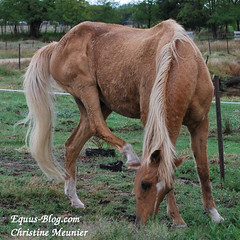There are people who are fascinated by parasites in particular species. Whether dogs, cats or horses, there are individuals who study the life cycles of parasites and their affects. If you have an interest in equine parasitology – the study of parasites in horses – and the use of anthelmintics – agents used to kills parasites, then perhaps you would like to pursue this as a career that can benefit the horse industry.

People are needed to study the parasite life cycle in horses. This information can then be used to determine when to best target parasites by worming horses. For those who study the active ingredients in wormers, worming pastes for horses can then be determined.
Someone has had to determine what kills particular worms. Did you know that pyrantel and praziquantel are best to kill of tapeworm? Did you know that particular times of the year are best to eradicate bot fly larvae?
For those who have an interest in this side of horse health, then perhaps an Equine Science or Animal Science degree is of interest. Try to find a course with a focus on horse health and parasitology. There will always be parasites. In fact, this could become an increasing concern if people don’t learn to only worm when needed. If this doesn’t occur, then worms can develop resistance – this has already been recorded with some active ingredients. As these worms survive and breed, the resistance is passed on and the worm burden can greatly increase.
The areas of anthelmintics and equine parasitology have many different focus points. Researchers and university lecturers are two potential horse related jobs within these areas. Often the two can be combined.
“The horse, with beauty unsurpassed, strength immeasurable and grace unlike any other, still remains humble enough to carry a man upon his back.” – Amber Senti

Leave a Reply